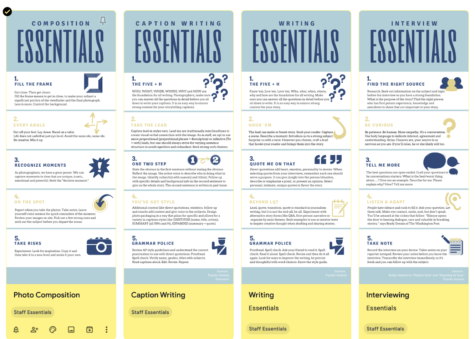Nine Ways to Motivate Your Staff
©Shutterstock/Feng Yu
Nine Ways to Motivate Your Staff (and keep them working really hard)
It doesn’t matter what size your staff or how big your publication is, keeping members happy and working together as a cohesive unit is the best way to ensure a quality result. Here are a few key principles to keep in mind while working with your staff:
1. Encourage ideas
Hold regular staff meetings to generate ideas for stories, design, and theme ideas. At first, especially with new staffers, it is a good idea to let them know ahead of time what you will discuss and limit them to a set number of choices. As they become more seasoned and familiar with the process, they will be able to run meetings on their own. At first, though, model for them how to run a meeting by guiding them through.
2. Grow confidence
New staffers, especially, will be shy about sharing ideas and afraid of looking silly by presenting out-of-the-box ideas. Encourage an environment of acceptance in your staff. Find merit in every idea, and encourage your editors and other staffers to do the same with one another. Never humiliate them, no matter how off-the-mark an idea might be, and never let them embarrass each other.
What to do with the far-out ideas that inevitably come up? Help them find ways to adjust and modify to make it work. Their confidence will soar, and their ideas will become more creative and useful every time.
3. Inspire ownership
It is important that staffers feel like publication owners, not publication workers. Each individual must feel responsible for how the book or newspaper turns out. One way to inspire a feeling of ownership is to allow each staff member to have input in the whole process. Make things like theme, cover choice, or website design be the decision of the staff rather than making the choices yourself. This helps to give each staffer a feeling of ownership in the entire process.
4. Shake things up
Have each member of your staff become familiar with what the other members are doing. When you can, have your students rotate responsibilities from time to time. Not only does this give each member a chance to learn the most, but it helps them to see the book as a whole.
Another way to accomplish this and to encourage collaborative work is to assign partner work or peer editing tasks. This brings multiple perspectives to each job and gives students a chance to learn about one another while becoming more familiar with every aspect of your publication. For potential future editors, especially, this can be very useful.
5. Praise them
Always find something positive to say about the work your staffers do. Sometime, especially with new members, that can be hard to do. It’s up to you to find it, though, and to point it out. This does not mean that you should not also point out what they need to fix, but find a balance. Never criticize without praising something.
What about a really weak student who turns in something completely wrong? Some one-on-one time, walking through the process with them, can be invaluable. Help that student create a “cheat sheet” of what to always double-check before turning in an assignment.
6. Pitch in
Never ask your students to do something you aren’t willing to do. Let your staff see you with a camera, write a story or help out with captions sometimes. Not only does it lighten their load, but they see that it is truly a full team effort.
7. Show your staff you appreciate them – and mean it
Get to know your students and show interest in their lives. Show up at their other activities. Ask how things are going – and when they talk, listen. There will be times when they are going through a tough time; let them know you are there to listen and give them your full focus when they need to talk. Every now and then, reward them. A pizza lunch, homemade cookies after making a deadline, a holiday treat: you’ll be surprised at how little it takes to make them feel loved.
8. Take time to have fun
Working under deadlines means that there is always work to be done, and seldom a great time to stop and relax. Despite the pressure, it’s important to set the work aside sometimes and do something as a staff that’s just for fun. Holidays offer great choices. Decorate pumpkins for Halloween, have a Thanksgiving feast, draw for a secret Santa exchange, create handmade Valentine’s Day cards, hold an egg hunt at Easter time. Celebrate birthdays. It doesn’t have to be elaborate – just take a break and have a bit of fun together. They will work more efficiently when they have had a break.
9. You’re the boss – act like it when you have to
There are going to be times when you have to make a decision as a leader, despite whatever efforts you may have made to make the yearbook a student-driven publication. There will be times when staffers disagree or when they argue. Let them work it out when you can, but don’t be afraid to step in when needed. While students like to have independence, they also like to know that their safety net is there for when they need it.
There is no set formula for motivating your staff, and no guarantee that you won’t hit a rocky point here and there. Letting your staff take the helm as much as possible, though, while building working relationships with them and having fun along the way, will go a long way to ensuring a happy, hardworking staff and a successful publication.






